
| CAMDEN DISTRICT ROLL OF HONOUR |  |
| CAMDEN REMEMBERS ANZAC DAY 2010 |
| Home | Pre 1914 | WWI | WWII | 1945-1975 | Since 1975 | |
| Contacts | Memorials | Stories | Anzac Day | Photo Gallery | Links |
| A glimpse of Anzac Day 2010 The 2010 winners of the essay competition were Isaac White and Aiden Munford, both students at Camden Public Primary School. Their essays are published here along with the Addresses given at the Dawn Service, the Main Service of Remembrance and Photographs of the day. Anzac Day Dawn Service Address by Captain (AAC) Ray Stanley, Officer Commanding 23 ACU. Another year another ANZAC Day another time to pause and reflect on: why we and thousands like us gather at Services similar to this throughout Australia and New Zealand. The number of veterans dwindle year by year but the memory of their courage, their determination and their friendship will last forever and it is rekindled around this time every year by those who are left behind where it has been passed on to sons, daughters and grandchildren. Sometimes it may not be apparent in the young - BUT REST ASSURED IT IS THERE!
The following year on the morning of April 25th, these ANZACS prepared to launch themselves against the Turks at Gallipoli. Can you imagine the fear, the nervousness, the excitement, the doubts that these young Australians felt! Sadly, by the end of the first day 2,000 ANZACS lay dead! A week later 6,500 had been killed or wounded, but the courage, the determination and their mateship kept them together. They had won the first of many battles but at a terrible cost. From Gallipoli through the Western Front to the Middle East, where the Australian Light Horse continued the battle, their ANZAC spirit saw them through sometimes horrific conditions. When the Great War ended in November 1919, over 61,000 ANZACS would never see Australia's shores again but their spirit came home - THE SPIRIT OF ANZAC! Throughout the years many more young Australians would answer the call. Again in 1939 the German Empire struck towards what many still considered "The Motherland" and a bit later to our North, and much closer to home, a "Yellow Peril" was confronting our homeland! The ANZAC spirit flared again and young men and women answered the call to help those in need and they did so because they believed in what they were doing and had the courage, the determination and the ANZAC spirit. We in Australia have never had our communities demolished or our freedom removed. To some, war has always been a long way off - not our concern. The World is a much smaller place these days as within a days travel you could be in Sydney - or on the other side of the world. We do live in a lucky country, but while we strive for peace on earth, we must also be ready to answer the call in time of need. The thousands of young ANZACS who fought for freedom and justice throughout the World did so that generations to come could live without the horrors of war so that they could enjoy their freedom and the kind of life all ANZACS wished for. At this Service today, remember the ANZACS. Remember their courage and their spirit. To the veterans - HOLD YOUR HEADS HIGH - you have served your country well! To the families and friends of departed comrades, remember they gave their lives so that you could survive. To the young, remember that this world is being passed to your hands. Use it well and remember, that without the sacrifices of the ANZACS you may not have had a World such as you know it in which to live. Through the mists of years - through the gulfs of twilight - could we but listen hard enough, we might catch some message of hope and encouragement from those who gave their lives for freedom. A message which might help us create a better World than that in which they lived. We might hear: " We are the deadů to you from failing hands we throw the torch; be yours to hold it high. If ye break faith with us who die, we shall not sleepů KEEP THE SPIRIT OF THE ANZACS ALIVE! Anzac Day Main Service Address by Mr Dudley Hannaford. (Warrant Officer 432652 RAAF) 'Firstly, I want to acknowledge Mr. lain Richard-Evan, President of the Camden R.S.L. Sub-Branch, The Honourable Pat Farmer, our local member for Macarthur of Federal Parliament, The Honourable Geoff Corrigan, our local member of State Parliament, and The Honourable Chris Patterson, Mayor of Camden, invited guests, ladies and gentlemen, boys and girls.
I realise some of our younger people today could well be asking quite understandable questions: 'What is all this about Anzac Day? Why do we make it so special on our nation's calendar? Why are well attended marches held on the 25th April each year in our cities, towns and villages throughout Australia? Why do we conduct special Anzac services in our churches and schools?' I'm sure we all understand that it is far and away from any celebration of war, but a time of remembrance and thanksgiving for those who paid the supreme sacrifice on our behalf, so that we, in today's world may live in relative peace. As we know, World War I broke out in 1914, and it does us good, as a nation, to remember that it was on this particular day, 25th April, 1915, the Australian and New Zealand Army Corps (better known as ANZACS), together with many more British and French troops, at dawn on that special day, made their historic first landing on Turkey's Gallipoli peninsular. It was a firm plan to put Turkey, who had joined Germany against the Allies, out of World War I. The campaign lasted 8 months and resulted in some 25,000 Australian casualties who included 8,700 killed or died of wounds or disease. So, from as early as 1923, this day has been set aside, nationally, for remembrance of that sad event ninety five years ago today. It has become a sacred tradition over all these years, in both Australia and New Zealand, to honour the memory of all, many of them very young, in their teens, who sacrificed their lives for these two countries in the cause of world peace, not only during World War I, but also during World War II and all subsequent regional wars. It was at Gallipoli that the Australian and New Zealand soldiers first gained the reputation for the bravery and skill they displayed in fighting against the overwhelming Turkish forces, even though the struggle ended in disaster and enormous loss of life. World War 1 lasted over four years and, in the minds of many at the time, this was to have been "the war to end all wars" but that was not to be! In less than 20 years after the close of World War I a Second World War broke out when Hitler, despite his signing of various treaties, decided to invade Poland. Australia, along with many other nations, again became heavily involved. This continued from 1939 to 1945, once again with heavy loss of life. Regrettably, since 1945, there have also been a number of regional wars and conflicts around the world in which Australian soldiers, sailors and airmen, as well as many young women, have been, and still are, engaged, with continuous loss of life and injury. Firstly, there was the war in Korea, then Malaya, Indonesia, Vietnam, Iraq and East Timor, as well as Afghanistan where Australian troops are currently serving in a most difficult and dangerous war. Because a number of these past events took place so long ago it must be difficult for some young people today to totally grasp the real importance and significance of Anzac Day. However, there could be many of you who had fathers, uncles, grandfathers, great uncles, even great grandfathers, who were called upon to go to war for their country. A good number of these people, sadly, would no doubt have had to pay the supreme sacrifice. Today we seek to honour them all, and their memory. Every man and woman who was engaged in these conflicts have had their own story to tell, but some found it too distressing to pass on to their families and friends their most terrible experiences, especially those who spent time in Japanese prison camps and Nazi Concentration camps - sordid details of which have been recorded in a number of books since printed. They cover many of the experiences of Australian and other prisoners in all theatres of war over the last century and beyond. As referred to earlier, we find there is still conflict and war being waged in many lands across the world, and Australians continue to be involved, resulting in further loss of life and injury. War achieves nothing but heartache, loss and despair. We have read, quite often, of acts of courage and heroism in the midst of battle when a life has been saved by the sheer selflessness and courage of a special mate. This act has always been greatly applauded. It does serve to remind us of that very special Man, the Lord Jesus Christ, the Son of God, who, over 2,000 years ago, willingly gave up His life on the cross for the whole world. By taking heed to what He taught while here on earth, we can come to Him and by simple faith, accept the gift He offers, which is life forever with Him. So let us, at this very special time, once again, salute all Australians, New Zealanders and others, who, in years past, and up to this present time, have responded to the call of their country in a time of need, and have sacrificed their lives in many theatres of war in the pursuit of peace, over the last century and beyond, for whom we are so deeply thankful. AT THE GOING DOWN OF THR SUN, AND IN THE MORNING, WE WILL REMEMBER THEM! LEST WE FORGET! ' What Anzac Day Means to Me by Isaac White age 10 Camden Public School.
I think about how young he was and that he lied to get in the army. He had a brother who was being held prisoner in Singapore and he wanted to go and help us win the war. I have looked at his secret diary, the one he kept and wrote in each night. It tells about the bombings, the air raids and the pesky goanna. You see, the goanna was the enemy too. It used to get into the chicken coop and steal all the eggs. It took him three weeks to catch that goanna and the photo of him holding it by the tail proudly is still sitting on my great-grandmothers cabinet. She looks at it everyday. I have looked in the metal box that he kept when he was in Papua New Guinea and it holds a picture of my Nan when she was a baby. He broke the mirror that he had and put her photo into the frame so he could keep it with him. He didn't get to see her take her first steps. He didn't get to be there when his second daughter was born. I remember the story of the day he came home. He wasn't picked up by the family; he hitched a ride home on the back of the mail car. My Nan was three and she still remembers quite vividly, him coming down the driveway in his uniform and slouch hat. She didn't know who he was. These are the things I think about, that my Nan was so lucky for her Dad to come home. I also think of the unlucky families that didn't have their fathers, their husbands and their sons return.' (Isaac's great grandfather was Private Harry Frank Burden, NX84952. Harry's brother was Private Reginald (Reg) Burden NX36070. Reg was a POW in Changi. They both lived in Camden.) What Anzac Day Means To Me by Aidan Munford Camden Public School
The meaning of Anzac is Australian New Zealand Army Corps. Anzac was formed in Egypt 1915 for the battle at Gallipoli. My great -great grandfather (Ernest Cornelius Vickery) was an Anzac he earned four medals the Military Medal, 1914-1915 star, British war Medal and the Victory Medal. He served in Egypt, Gallipoli, Western Front (also known as France). His highest medal honor the Military Medal is one honor under the Victoria Cross. My great-great grandfathers sons also went to war their names are Thomas George Vickery and Ernest Cornelius Vickery Jnr the second one having being awarded the Military Cross. My great-great grandfather and his sons came back from the war they were very fortunate not to be killed, and my dad was a captain in the New Zealand army reserves before coming to Australia. I am very proud to know my family has played a part in protecting their countries whether on the front line or as a reserve. Today we live in a free country with rights to vote and have our say in what happens in this country. If the Anzac's hadn't fought for our country in the war we wouldn't have our say in things that happen in this country and wouldn't be able to vote, we would not be a free country. So I say thank you to those Anzac's who fought. Even today we have soldiers protecting our nation, but we must never forget even as time goes on the Anzac's and that is what Anzac day means to me.' |
||||||
Anzac Day 2010 in picture (photos by Ray Herbert) |
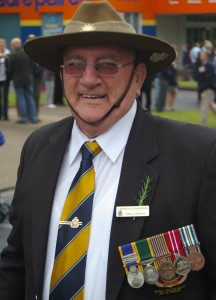 |
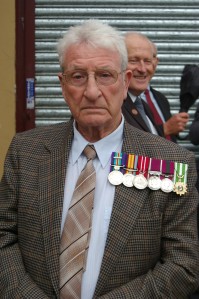 |
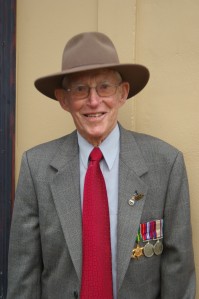 |
|
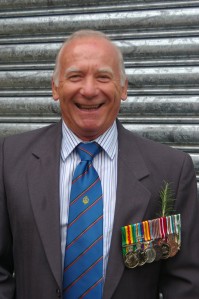 |
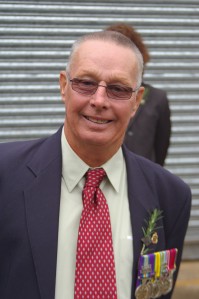 |
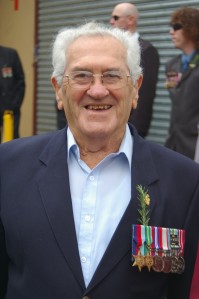 |
|
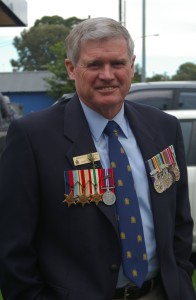 |
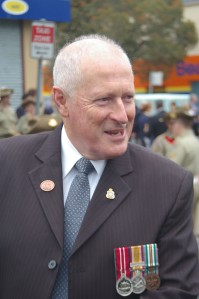 |
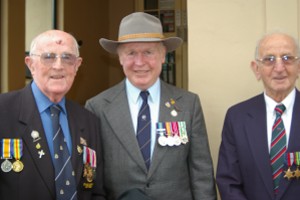 |
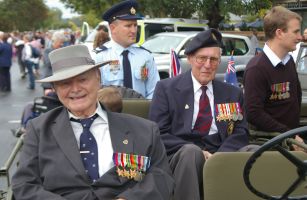 |
|
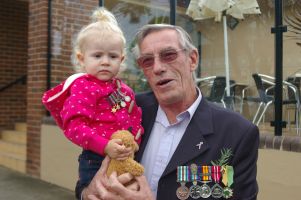 |
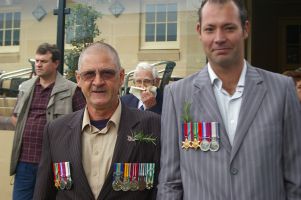 |
|
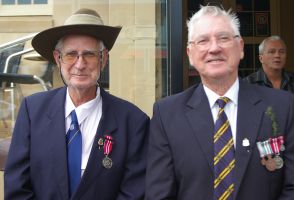 |
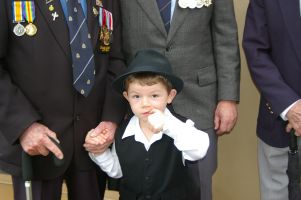 |
|
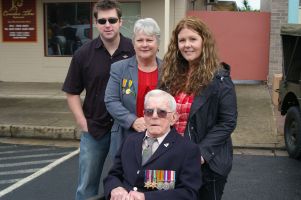 |
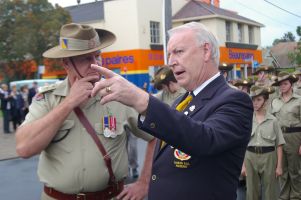 |
|
 |
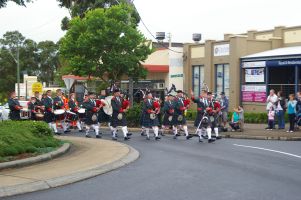 |
|
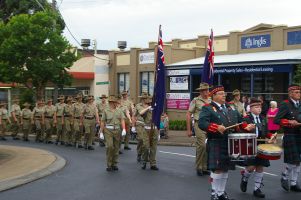 |
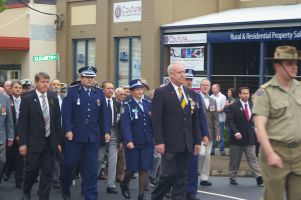 |
|
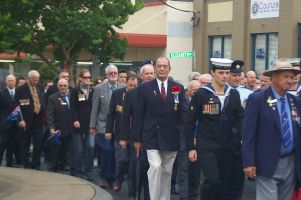 |
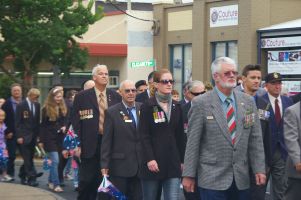 |
|
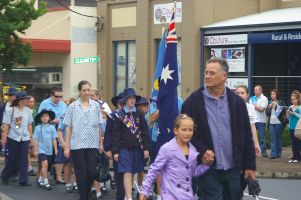 |
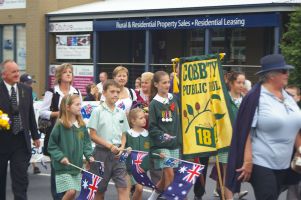 |
|
 |
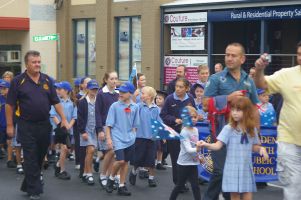 |
|
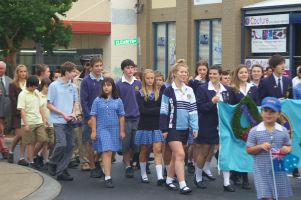 |
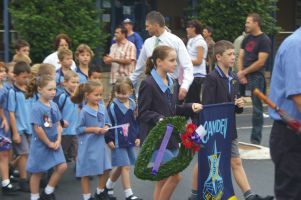 |
|
 |
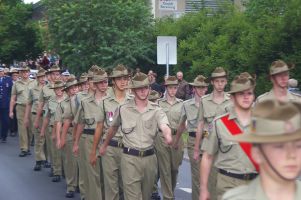 |
|
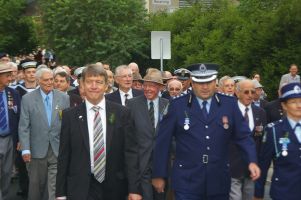 |
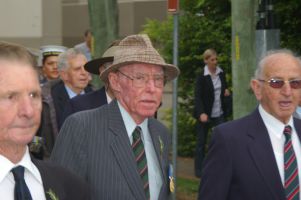 |
|
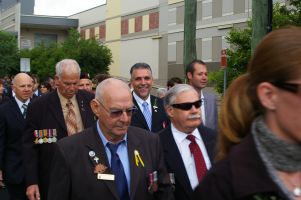 |
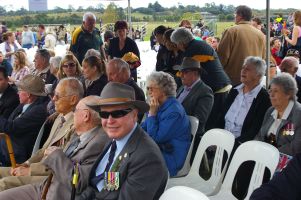 |
|
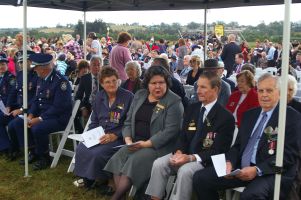 |
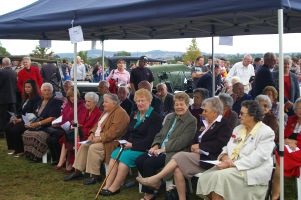 |
|
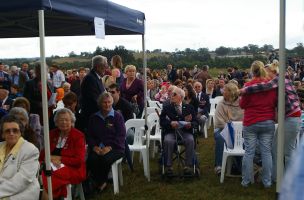 |
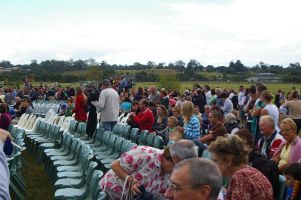 |
|
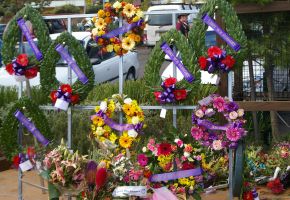 |
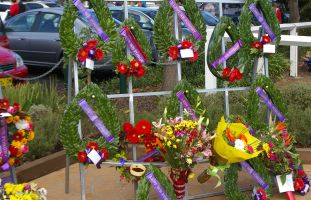 |
|
| Home | Pre 1914 | WWI | WWII | 1945-1975 | Since 1975 | |
| Contacts | Memorials | Stories | Anzac Day | Photo Gallery | Links |
| Copyright / Privacy
Last Updated |